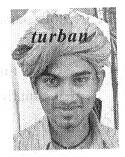题目内容
I go to Australia for a meeting with my workmate, Chris. We decide(决定) to drive across the country after the meeting. The drive will take four days and most of it was across the desert(沙漠).
The first day is a lot of fun because we are happy to hear each other's jokes(玩笑). But on the third day, we begin to get bored. We are quite quiet for some hours when(这时) Chris sees some kangaroos(袋鼠).We are both excited and decide to take a closer(近一点的) look. Chris drives very quickly to catch up with(赶上)them. We got closer and closer. Suddenly(突然), we hear a loud BANG!
Chris stops the car and we get out. Beside the car is a large kangaroo(袋鼠) lying on the ground. Chris goes over to it and puts his cap on its head. He takes off his sunglasses and puts them on the kangaroo and does the same with his jacket. Then he puts his arm around the kangaroo and tells me to take a photo of them together. I take out my camera. When I am focusing(调整焦距)the camera, I sees the kangaroo move(移动). It suddenly wakes up, and runs away before we can do anything.
I start laughing(大笑) but Chris looks worried. He says his wallet is in the jacket. I start laughing even louder(更大). I stop laughing when he says that our car keys are also in the jacket.
小题1:Why does the writer go to Australia?
小题2:How long will the drive take according to their plan?
小题3:What does the underlined word "bored" mean in Chinese?
小题4:Why do they hear a loud BANG?
小题5:What can we know from the passage?
The first day is a lot of fun because we are happy to hear each other's jokes(玩笑). But on the third day, we begin to get bored. We are quite quiet for some hours when(这时) Chris sees some kangaroos(袋鼠).We are both excited and decide to take a closer(近一点的) look. Chris drives very quickly to catch up with(赶上)them. We got closer and closer. Suddenly(突然), we hear a loud BANG!
Chris stops the car and we get out. Beside the car is a large kangaroo(袋鼠) lying on the ground. Chris goes over to it and puts his cap on its head. He takes off his sunglasses and puts them on the kangaroo and does the same with his jacket. Then he puts his arm around the kangaroo and tells me to take a photo of them together. I take out my camera. When I am focusing(调整焦距)the camera, I sees the kangaroo move(移动). It suddenly wakes up, and runs away before we can do anything.
I start laughing(大笑) but Chris looks worried. He says his wallet is in the jacket. I start laughing even louder(更大). I stop laughing when he says that our car keys are also in the jacket.
小题1:Why does the writer go to Australia?
| A.For a meeting. | B.For a trip. | C.For a holiday. | D.To see his friend. |
| A.One day. | B.Four days. | C.Half a month. | D.Two months. |
| A.无聊的 | B.口渴的 | C.饥饿的 | D.困倦的 |
| A.Because there is something wrong with their car. |
| B.Because someone else is hunting(捕猎) kangaroos. |
| C.Because something falls off (从---掉下) their car. |
| D.Because their car knocks down(撞倒) a kangaroo. |
| A.The writer takes a photo of Chris and the kangaroo. |
| B.The kangaroo runs away together with Chris’s wallet and their car keys in his jacket. |
| C.They decide to walk across the desert. |
| D.The writer is still(仍然)very happy at the end of the story. |
小题1:A
小题2:B
小题3:A
小题4:D
小题5:B
试题分析:这个故事讲述了作者和同事开车去澳大利亚开会,在途中他们看见了一只袋鼠,想凑过去看清楚些,却不小心撞向了袋鼠。同事下车把夹克,太阳镜等给袋鼠带上,让作者给他和袋鼠照相。没想到袋鼠一下就跑了,还带走了装有钱包和车钥匙的夹克。
小题1:细节理解题。根据文中第一段I go to Australia for a meeting with my workmate, Chris我和我的同事Chris去澳大利亚参加会议。故选A,参加会议。
小题2:细节理解题。根据文中第一段The drive will take four days开车需要四天,故选B,四天。
小题3:词意猜测题。根据文中内容,第一天我们觉得很有趣;But on the third day, we begin to get bored.但是到第三天,我们开始觉得无聊了。Bored无聊的,故选A。
小题4:判断推理题。根据文中第三段Beside the car is a large kangaroo(袋鼠) lying on the ground.在汽车旁边一只大袋鼠躺在地上,由此可判断那声音是汽车撞倒了袋鼠,故选D。
小题5:判断推理题,根据文章第四段内容,He says his wallet is in the jacket. I start laughing even louder(更大). I stop laughing when he says that our car keys are also in the jacket.他说他的钱包在夹克里,我笑的更大声。而当他说车钥匙也在夹克里时我笑不出声了。由此可判断袋鼠把装有钱包和钥匙的夹克带走了,故选B。

练习册系列答案
 阅读快车系列答案
阅读快车系列答案
相关题目

